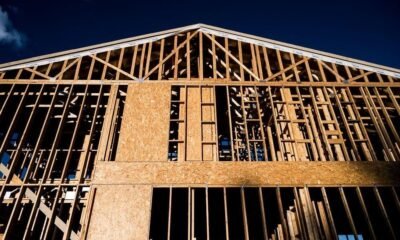arizona
Voters to Decide on Granting Virtual Lifetime Appointments to Az Judges

Arizona voters will soon have the opportunity to decide on a significant change regarding judicial appointments. The Arizona Supreme Court has confirmed that a proposal, aimed at awarding lifetime appointments to state judges, will appear on the November ballot.
The proposal, known as Proposition 137 or “The Judicial Accountability Act of 2024,” was brought forth by GOP lawmakers. Advocates for judicial reform, specifically Progress Arizona, sought to prevent this measure from reaching voters, arguing that it violates the constitutional restriction against amending multiple sections simultaneously.
However, the Supreme Court justices were not swayed by these arguments. Chief Justice Ann Scott Timer emphasized the interconnected nature of the proposal’s provisions, which allowed it to meet constitutional standards. She stated, “The Court finds that (Prop. 137) complies with the separate amendment rule because its provisions are topically related and sufficiently interrelated so as to form a consistent and workable proposition.”
If Proposition 137 is approved by voters, it would eliminate term limits for judges across several levels, including Arizona Supreme Court Justices and trial court judges in key counties. Currently, supreme and appellate court judges serve six-year terms, while trial judges serve four years before facing retention elections. The proposed changes would allow judges to serve indefinitely unless they face serious legal or performance issues.
In addition, the ballot measure proposes to change how judges are evaluated by introducing new appointment powers for legislative chambers and allowing lawmakers to initiate investigations against judges based on specific complaints.
Opponents argued that Proposition 137 undermines the state’s constitutional process by altering how judges are retained while involving lawmakers in the governance of the Judicial Performance Review Commission. Yet, the Supreme Court upheld an earlier ruling by Yavapai County Superior Court Judge John Napper, who stated that the linked nature of these provisions justified their inclusion in one measure.
Perhaps the most contentious aspect of Proposition 137 is its retroactive application. Should voters approve it, it would invalidate any retention elections conducted in the same election cycle. This could greatly affect critical races, particularly for Arizona Supreme Court Justices Clint Bolick and Kathryn King, who have faced backlash for their support of reinstating an abortion ban dating back to the Civil War.
The controversy surrounding the judicial retention of Bolick and King has already sparked campaigns aimed at removing them from office, particularly from groups advocating for reproductive rights. However, if Proposition 137 passes, these judges may evade the consequences of voter disapproval.
While Senator Shawnna Bolick, Clint Bolick’s wife, played a role in advancing Proposition 137, both judges recused themselves from participating in legal discussions related to the proposal, acknowledging its potential impact on their retention.


















